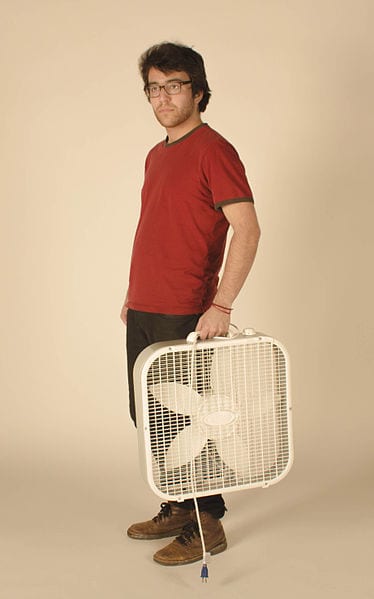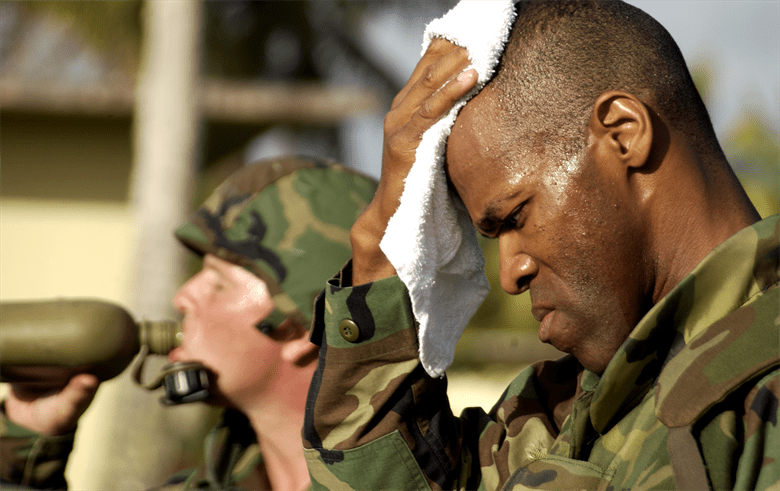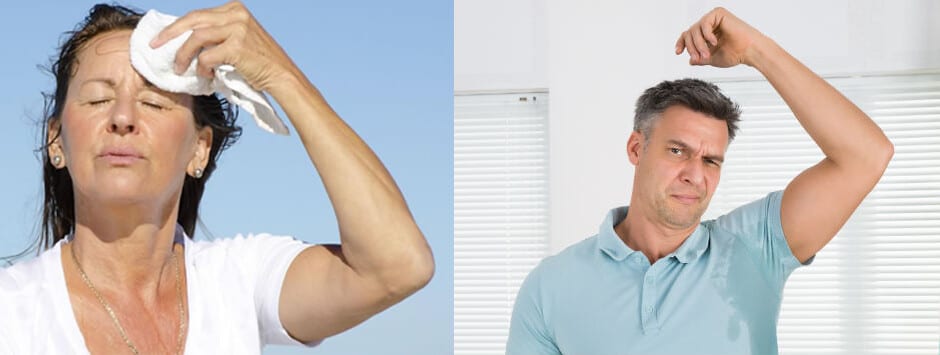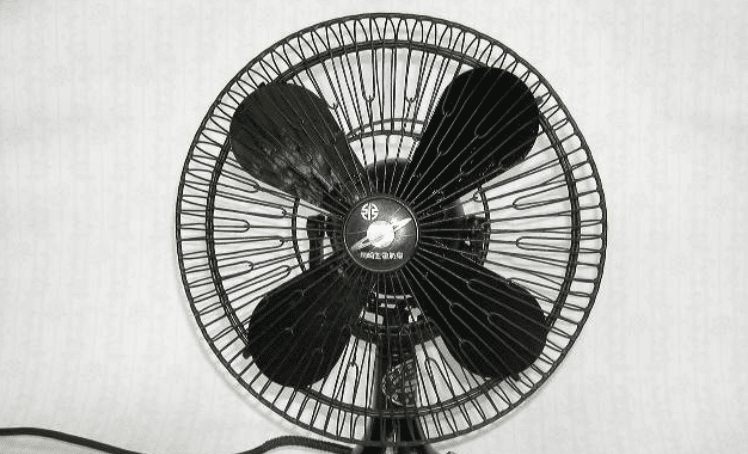As I sit here typing away on my laptop, it is 91 degrees outside my front door in Charlotte, North Carolina. Tomorrow it’s going to be a whopping 96 degrees…without the heat index. In other words, it’s really f**king hot, and there’s no end in sight. And I know folks in other parts of the country are feeling the heat as well.
Also, I live and die by the fan, meaning that I need to have a fan blowing on me when I sleep, or else it’s a loooooooong night of tossing and turning. And during those really sweltering days when the AC isn’t doing its best work, I have a fan blowing in the living room as well.

Photo Credit: Wikimedia Commons
But it turns out that fans aren’t always helpful for cooling down, and that’s according to real, live scientists who are a lot smarter than you and I.
The World Health Organization and the U.S. Centers for Disease Control and Prevention both assert that fans don’t help protect people from heat-related illnesses when the temperature hits the high 90s. And the U.S. Environmental Protection Agency warns people NOT to use fans when the heat index (the combination of temperature and humidity) is 99 degrees or above.

Photo Credit: US Air Force
A recent study shed even more light on when it’s beneficial (or even safe) to use a fan. Researchers studied 12 healthy men who sat for two hours in two different conditions: dry heat, with a heat index of 115 degrees, and humid heat, with a heat index of 133 degrees.
The study showed that under hot and humid conditions, fans lowered the men’s core body temperature and reduced the heat-related strain on their hearts. But under the hot and dry conditions, running a fan increased the men’s’ core body temperature and the strain on their hearts.
It makes sense from a physiological standpoint: when the temperature rises above a person’s skin temperature, heat from hot air starts to flow into the body. So running a fan will only make the hot air flow into the body faster. And this can potentially cause problems.

Photo Credit: Flickr,Elaine Smith
Ollie Jay, the leader of the study, says, “Fans at any temperature up to 104°F, where there is some kind of humidity, are beneficial. But as the temperature goes higher, if it’s dry then fans are progressively less useful and potentially detrimental.”
Jay is working with public health agencies to revise their recommendations about when people can rely on fans to cool down. Jay says, “The heat problem is not going away. And there are lots of ways to cool the body without having to rely on air conditioning.”






